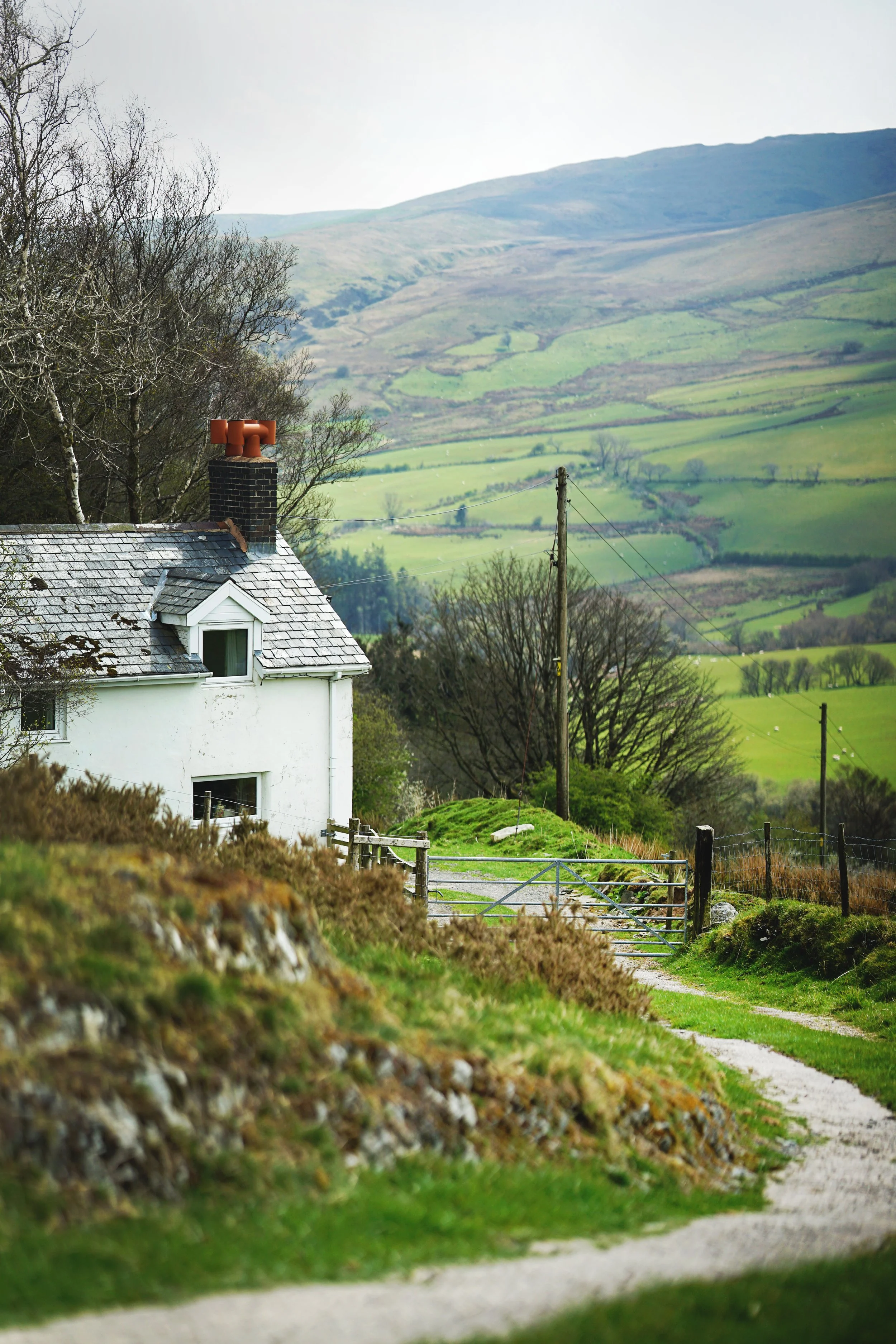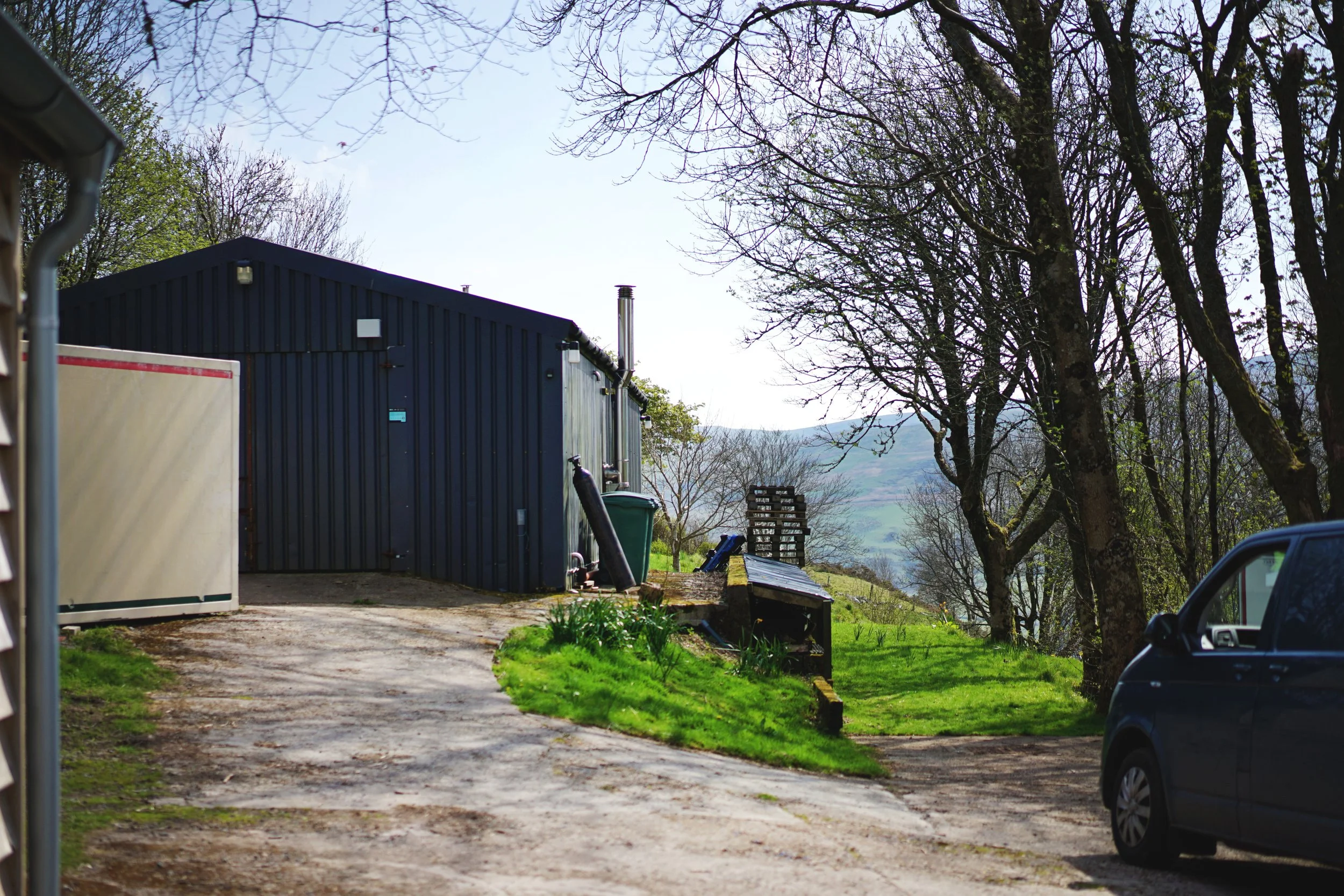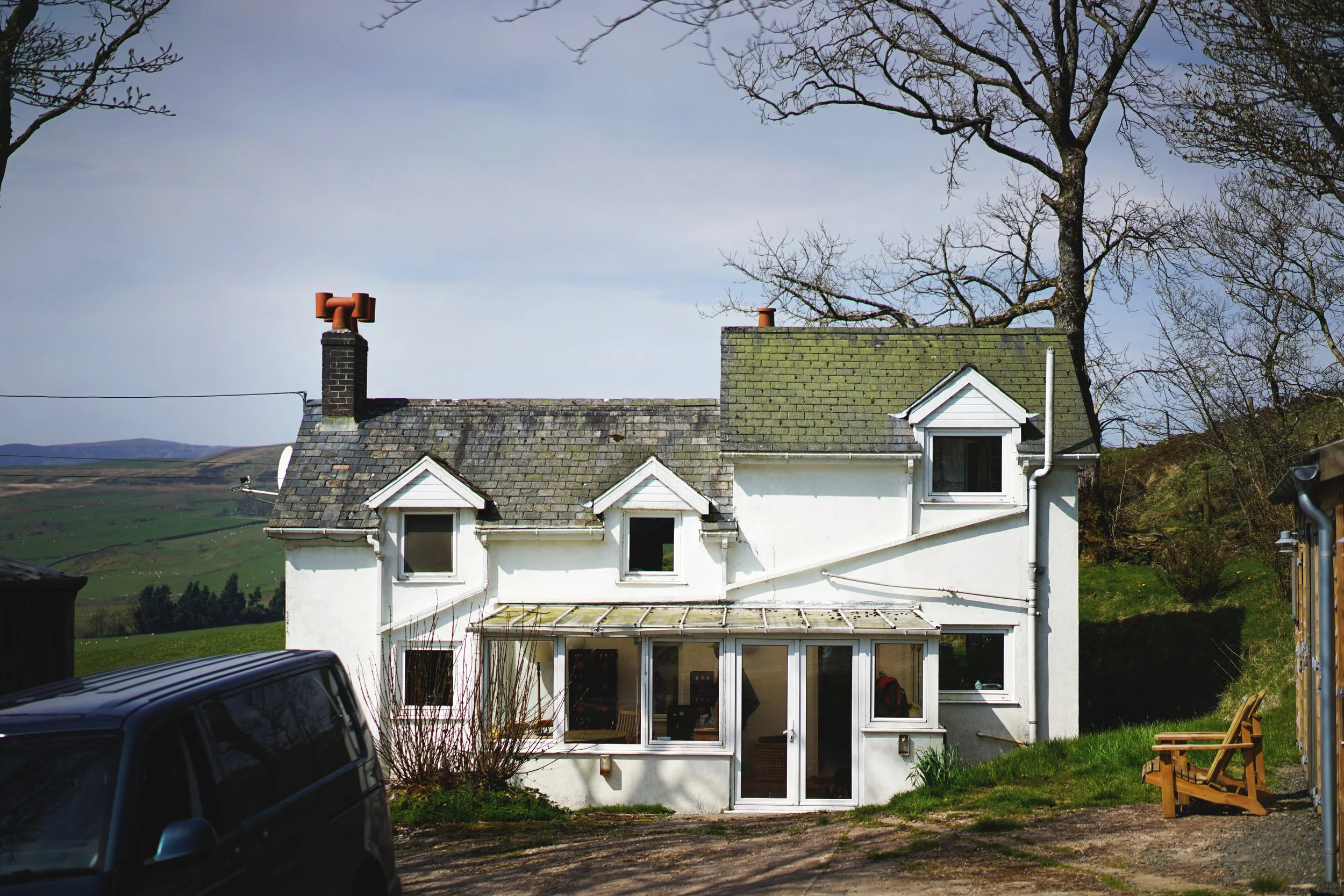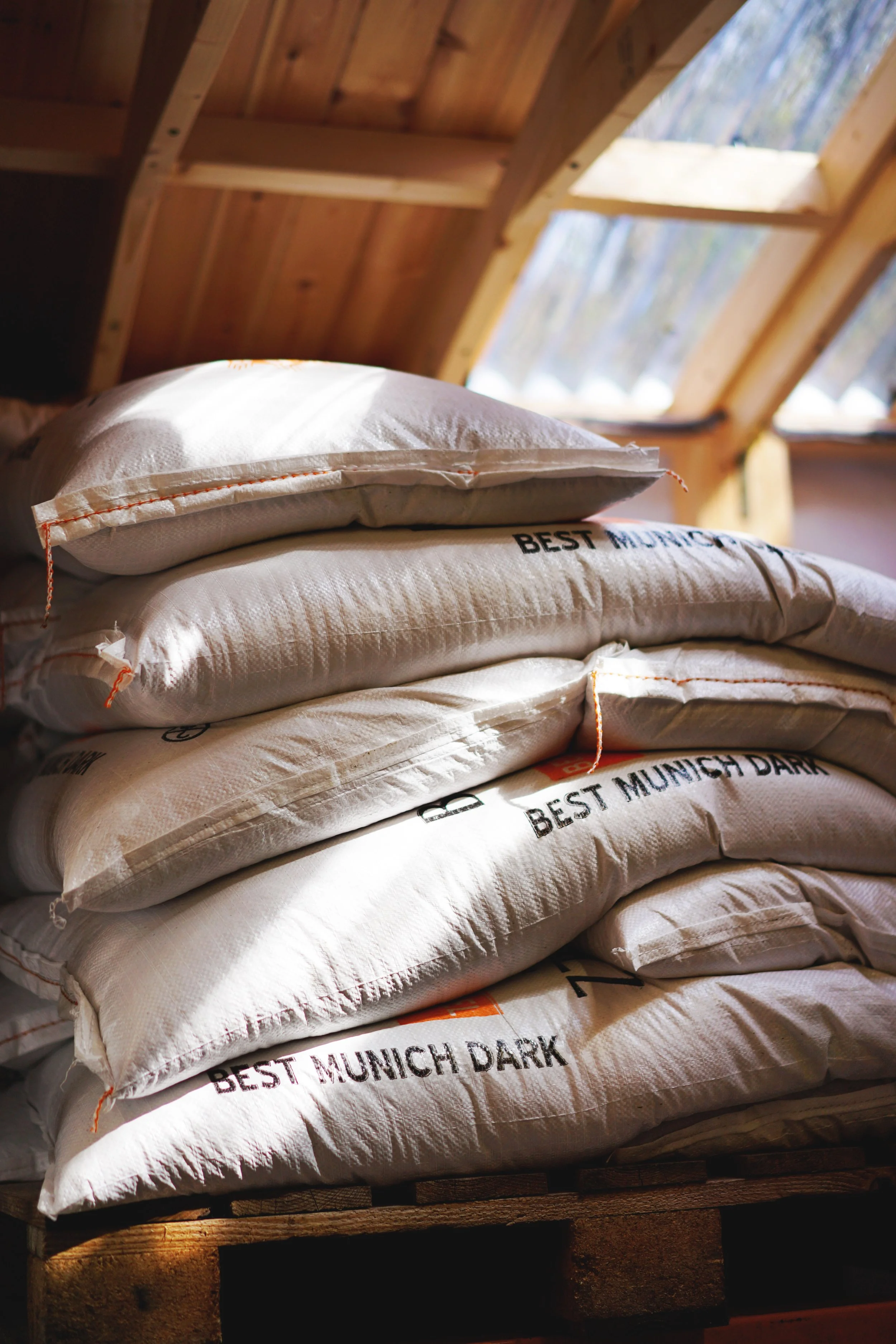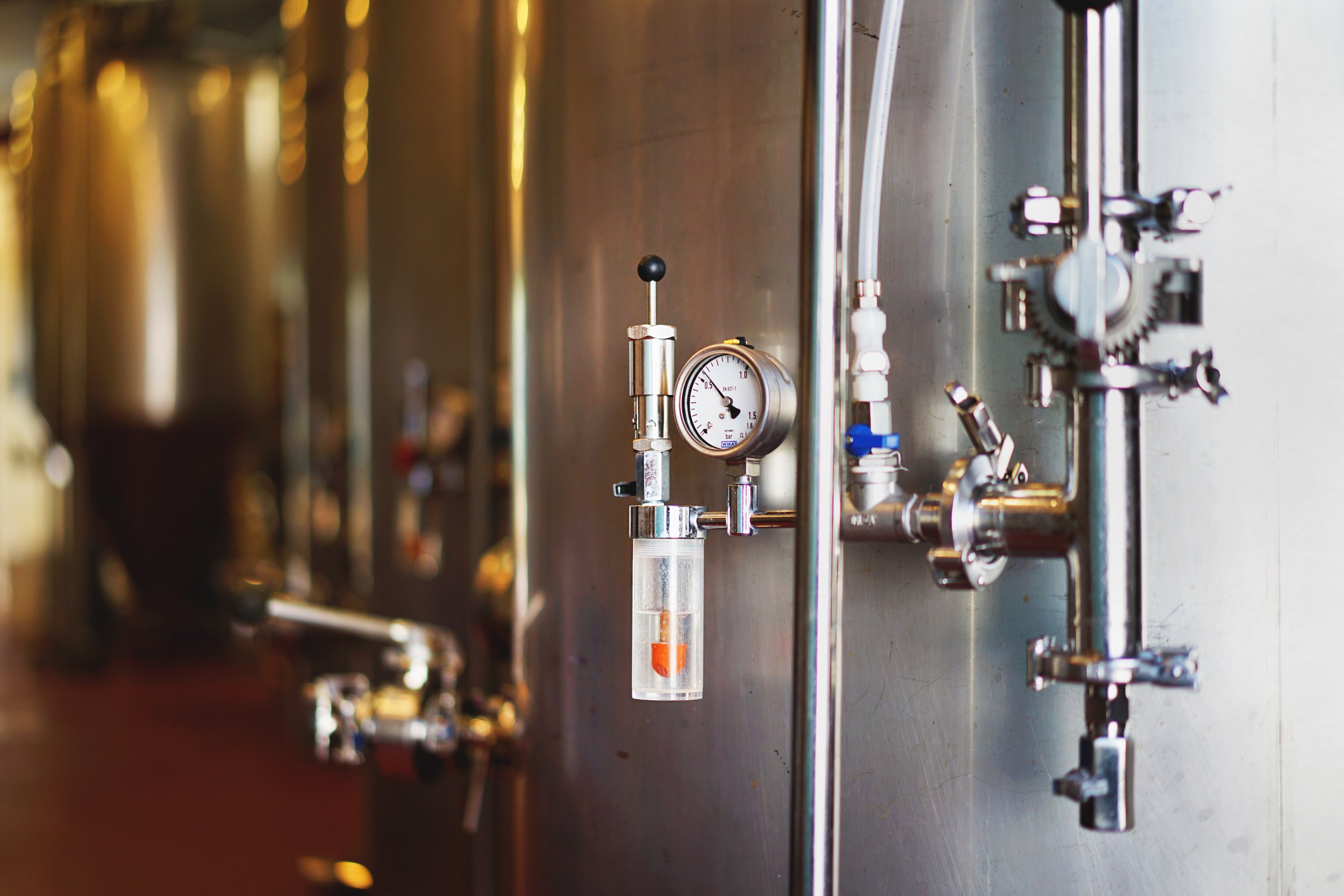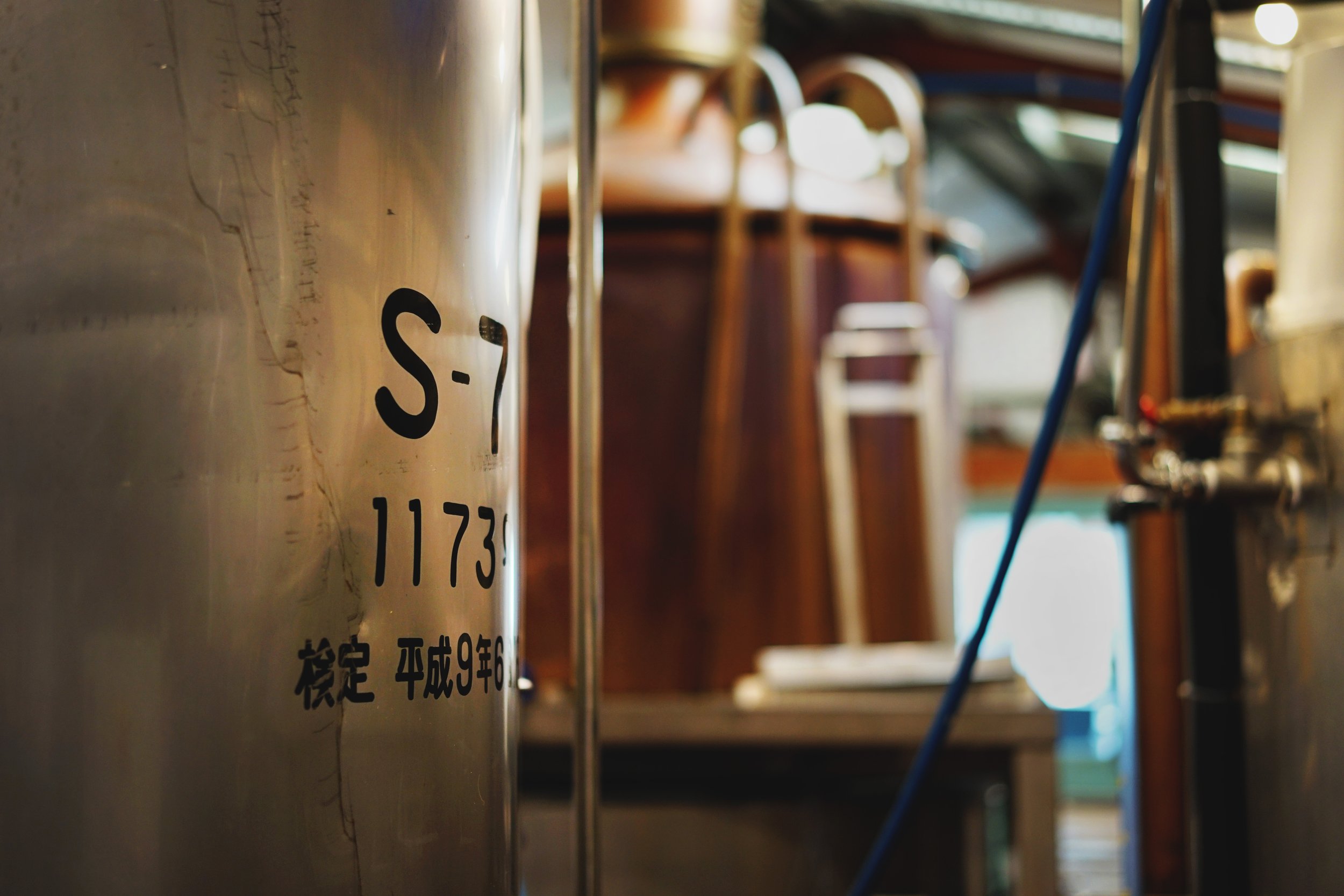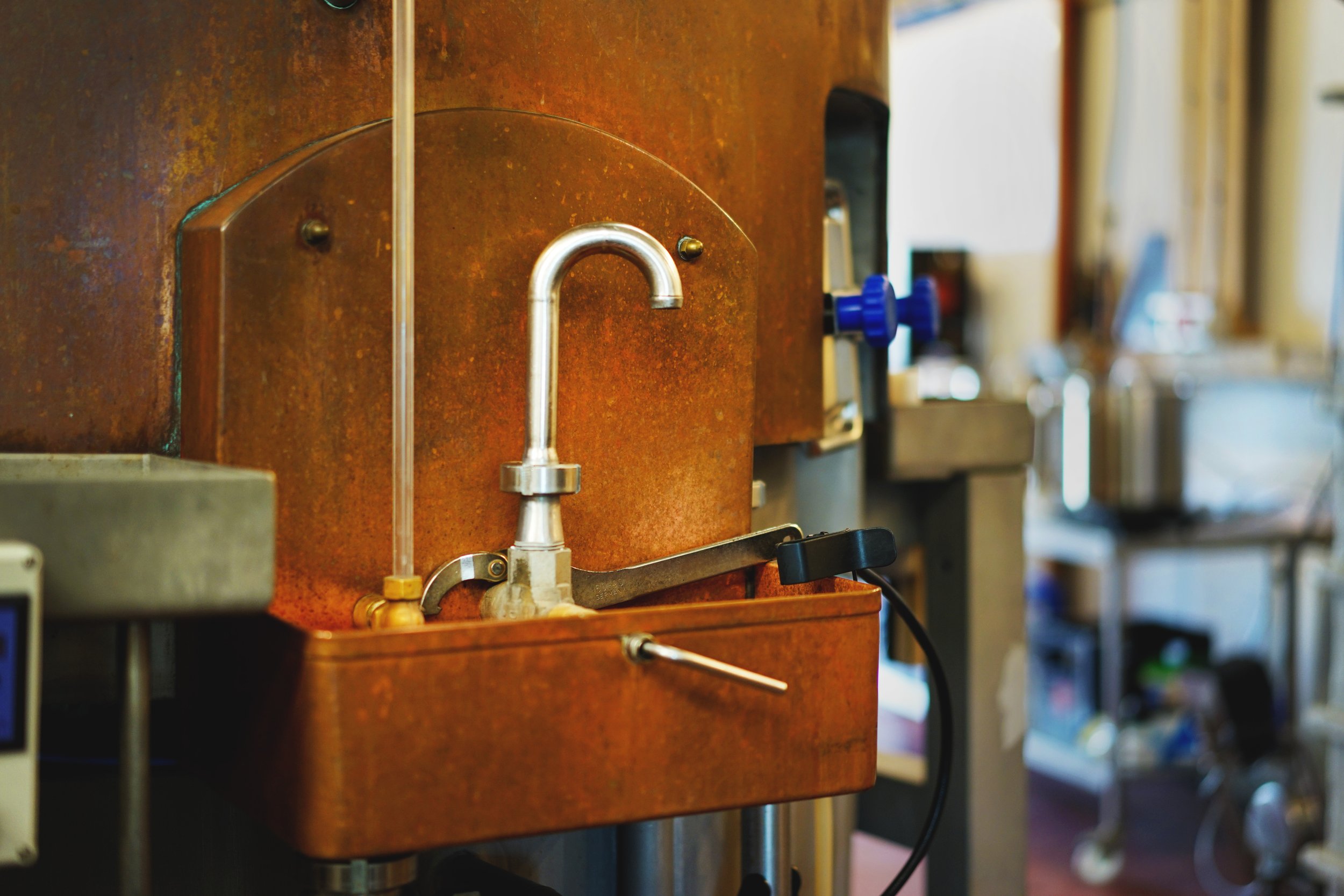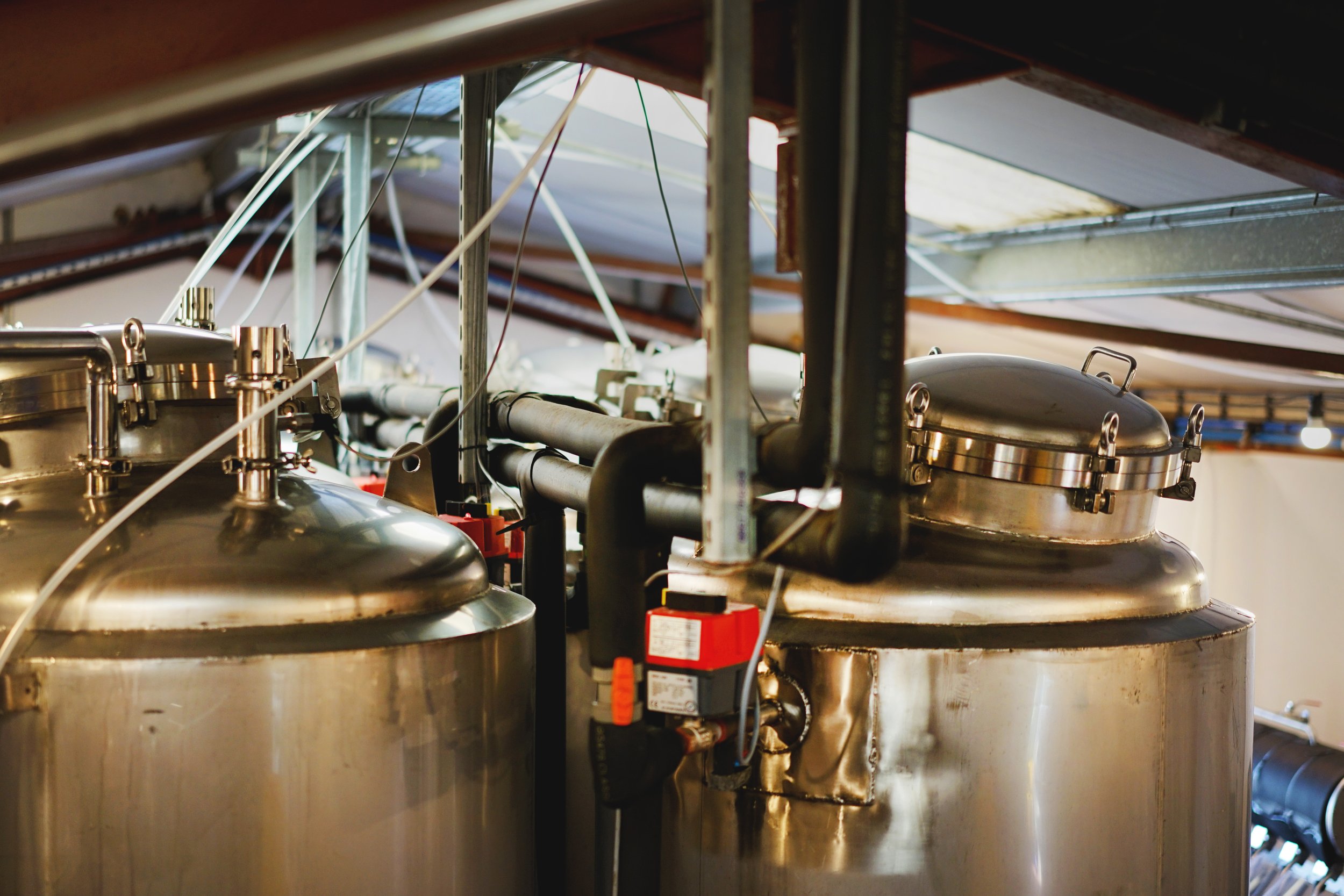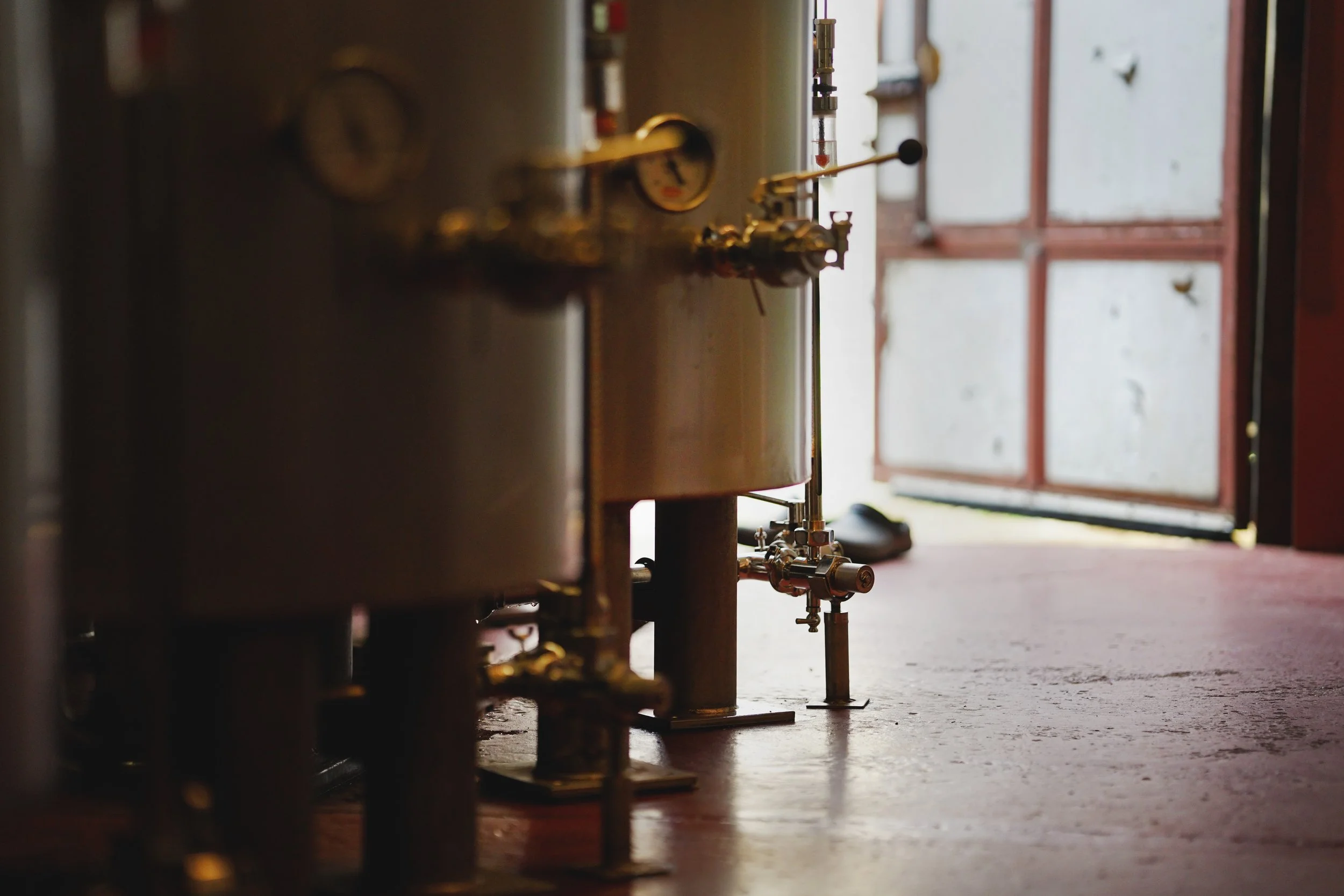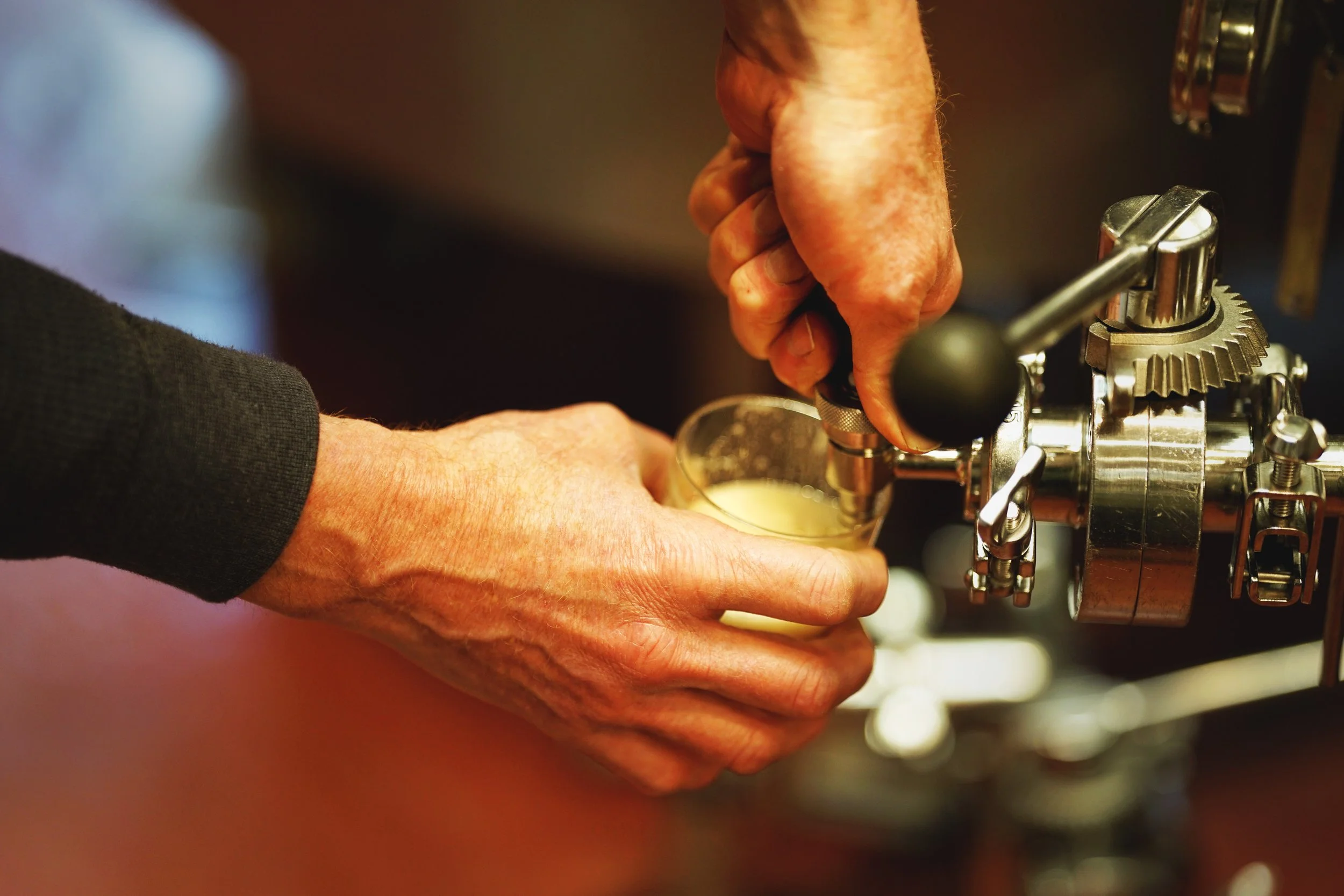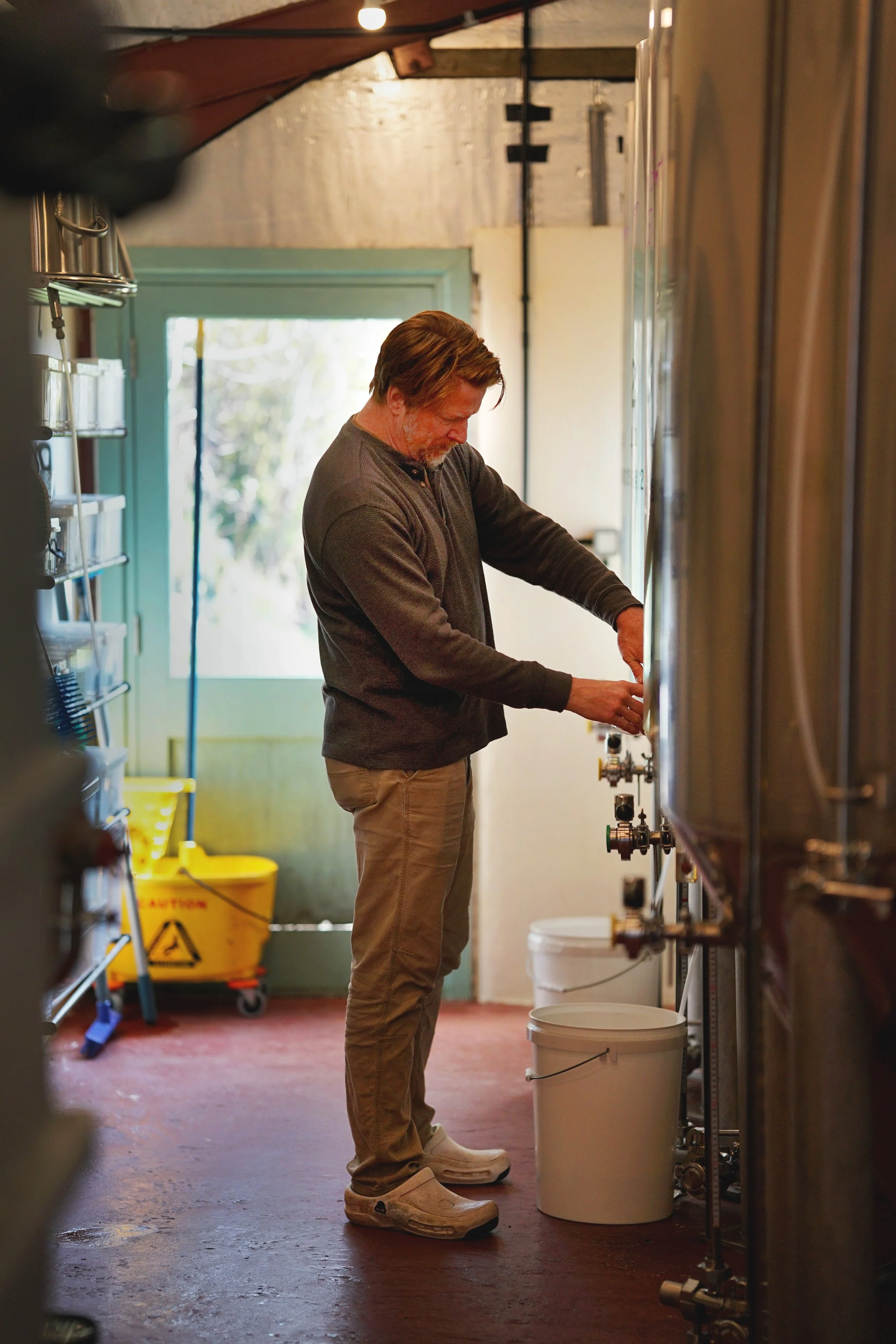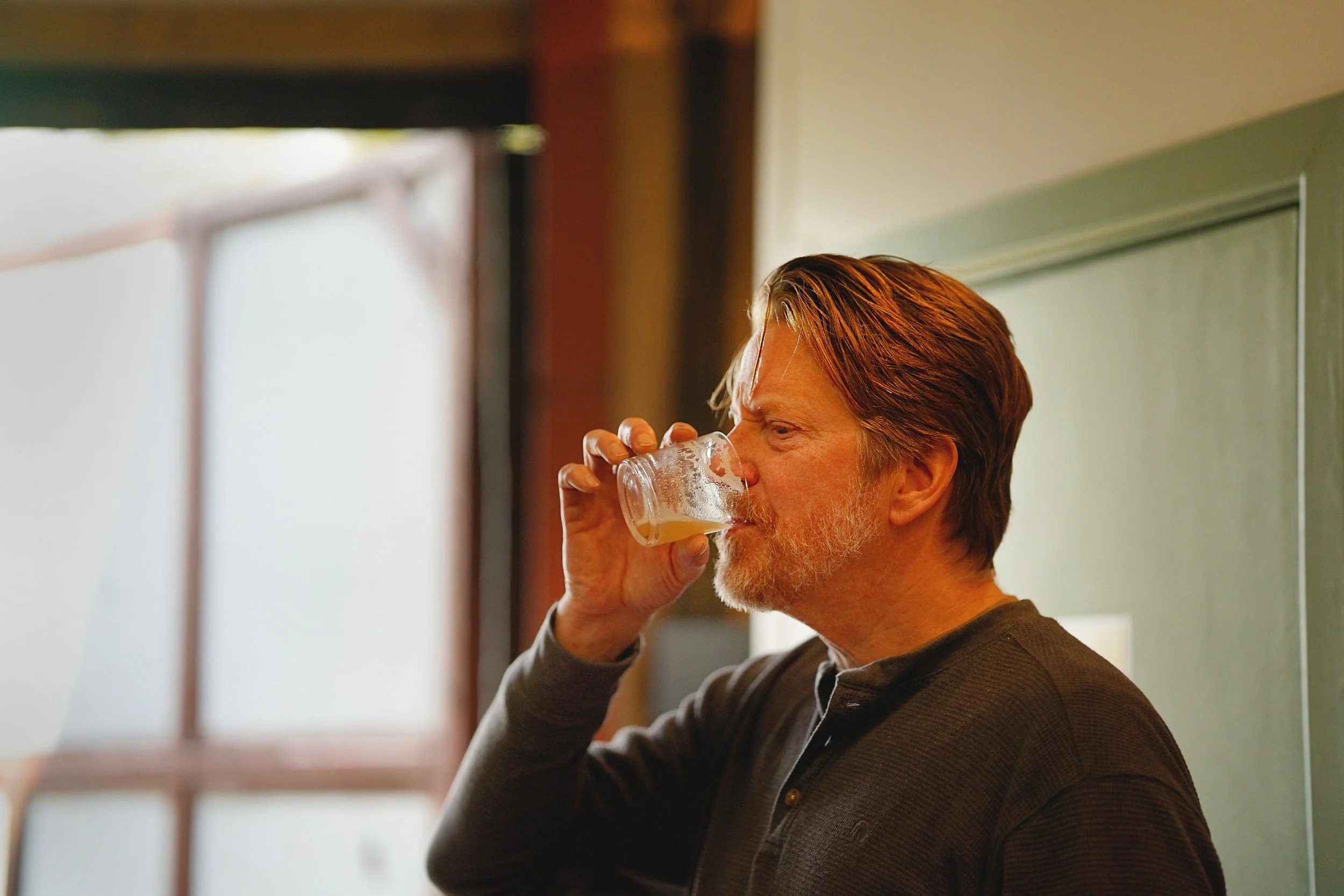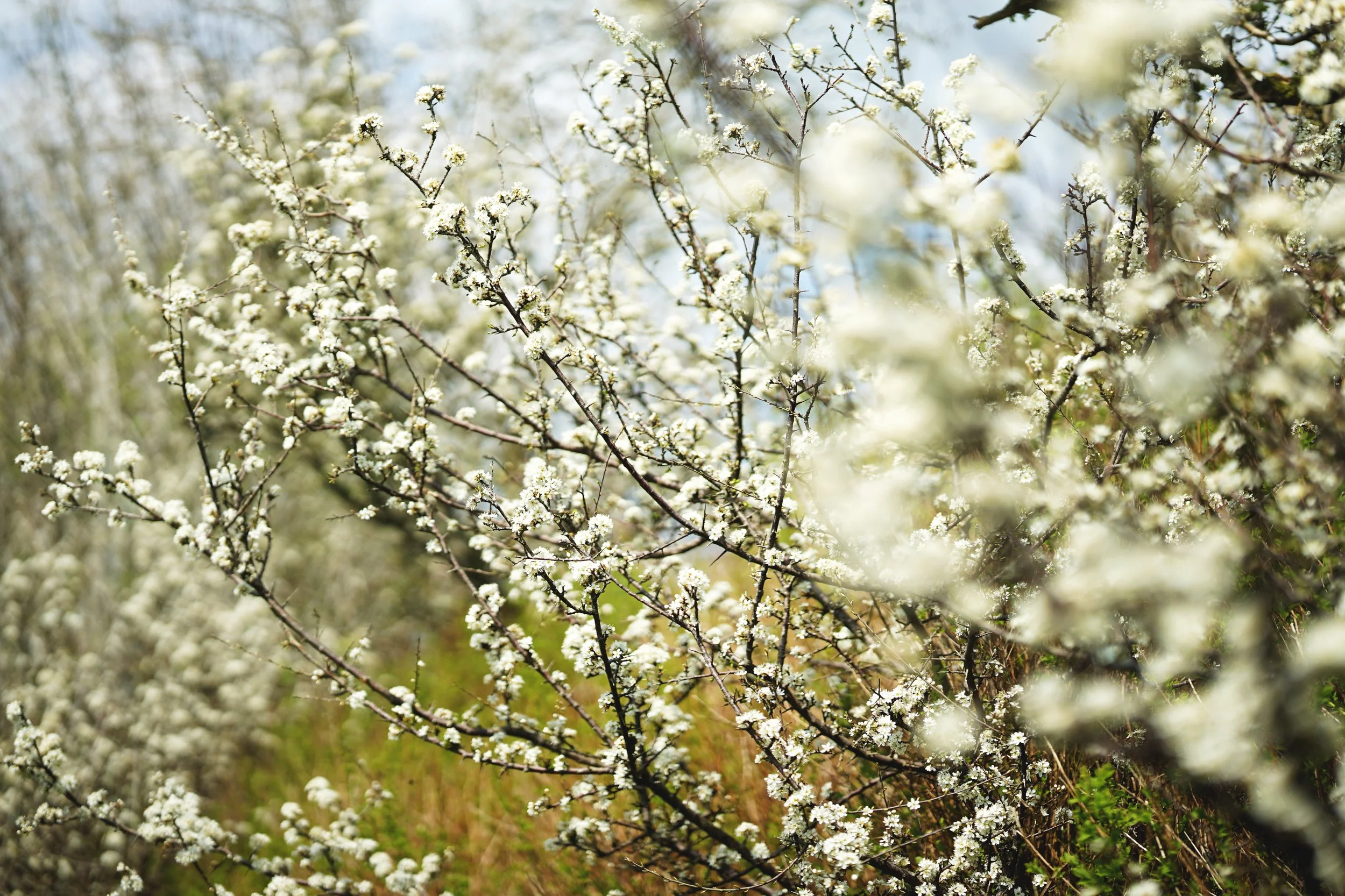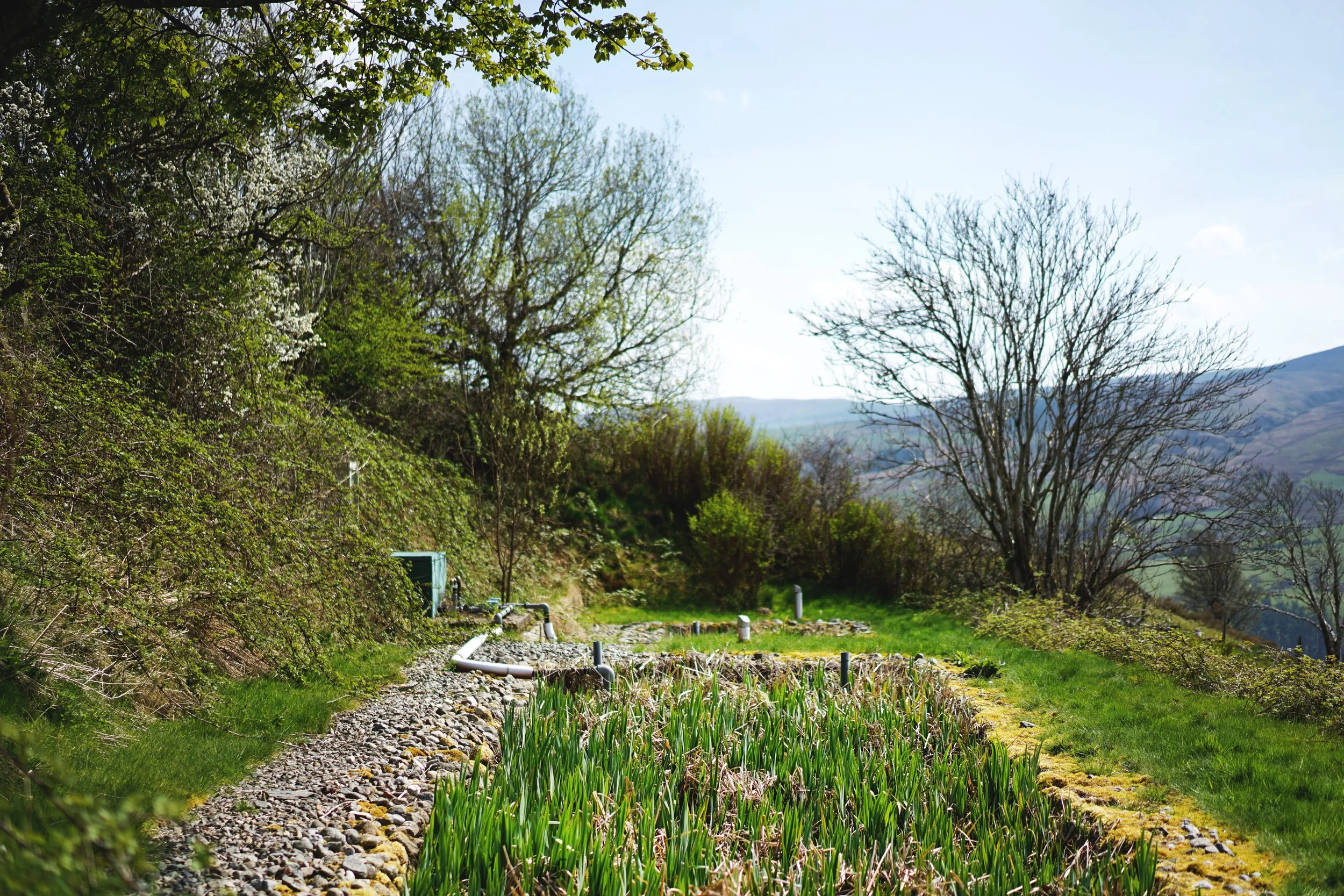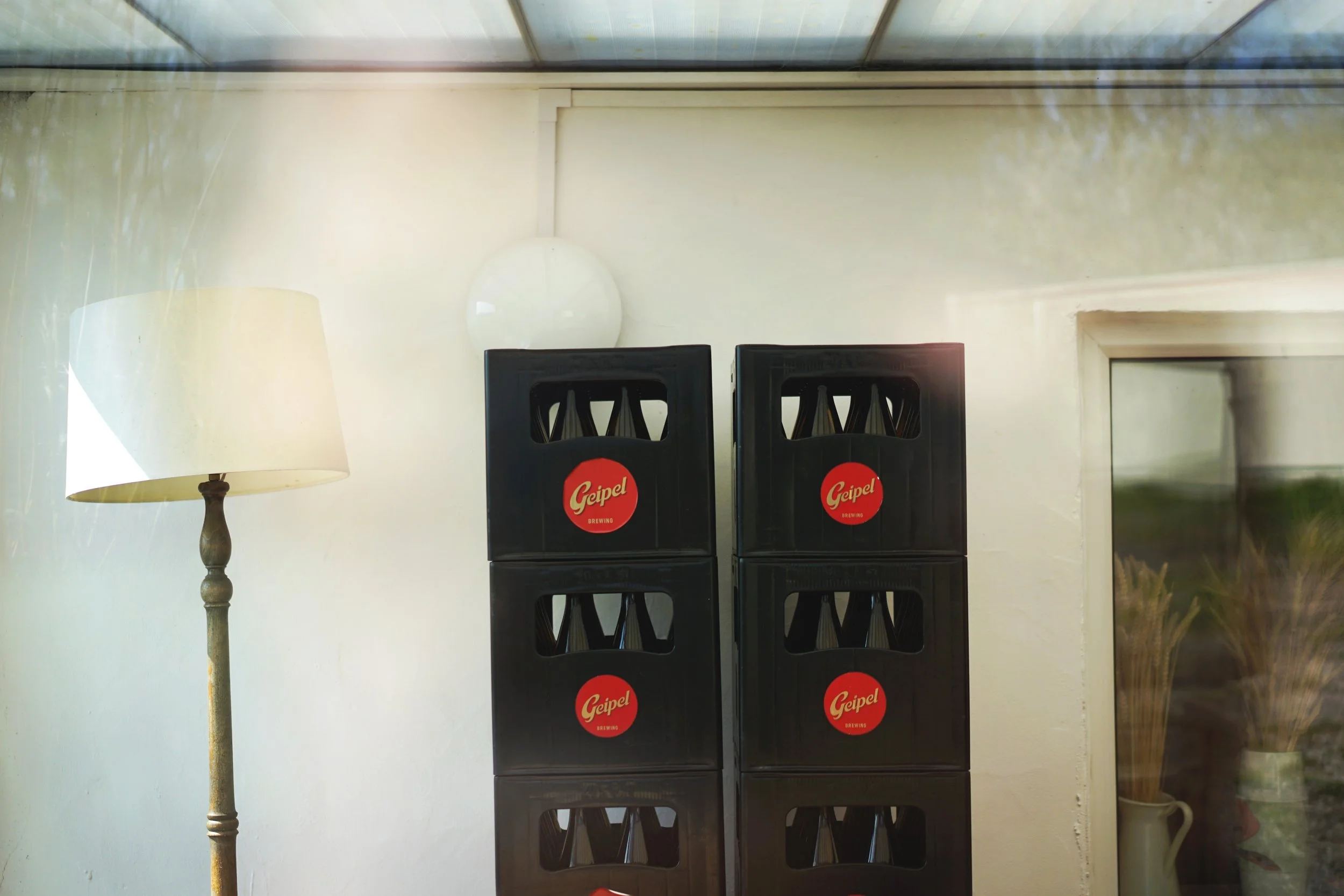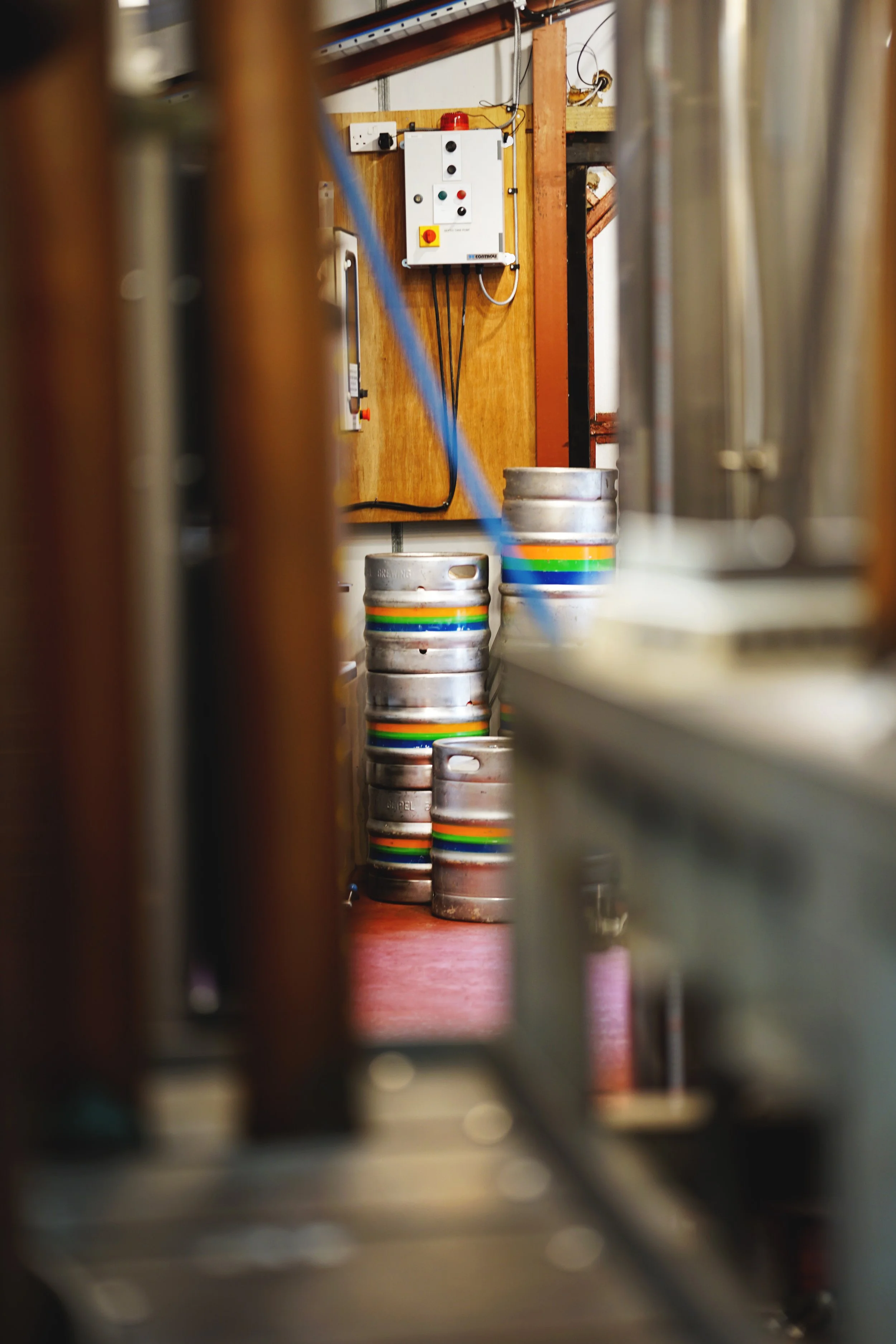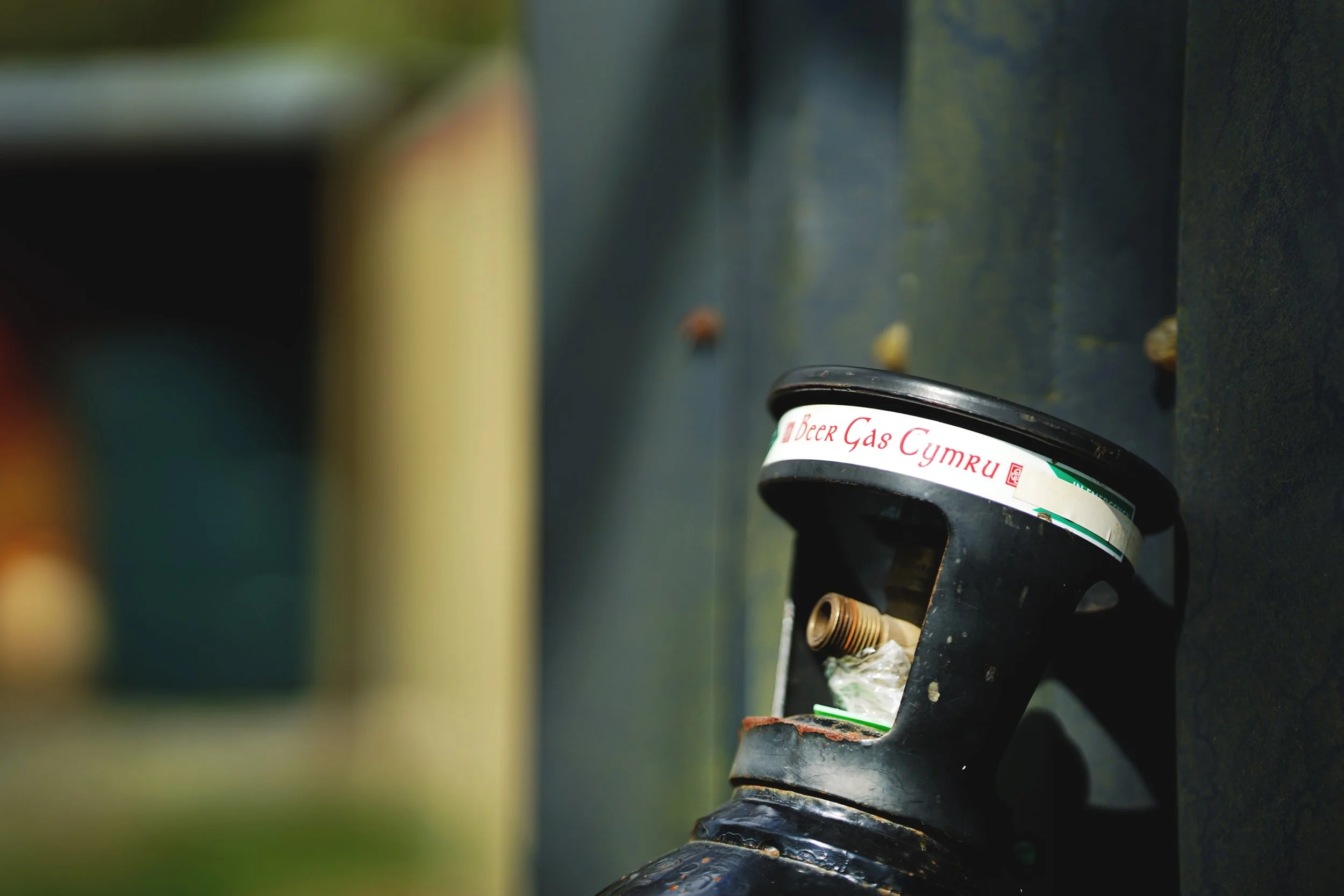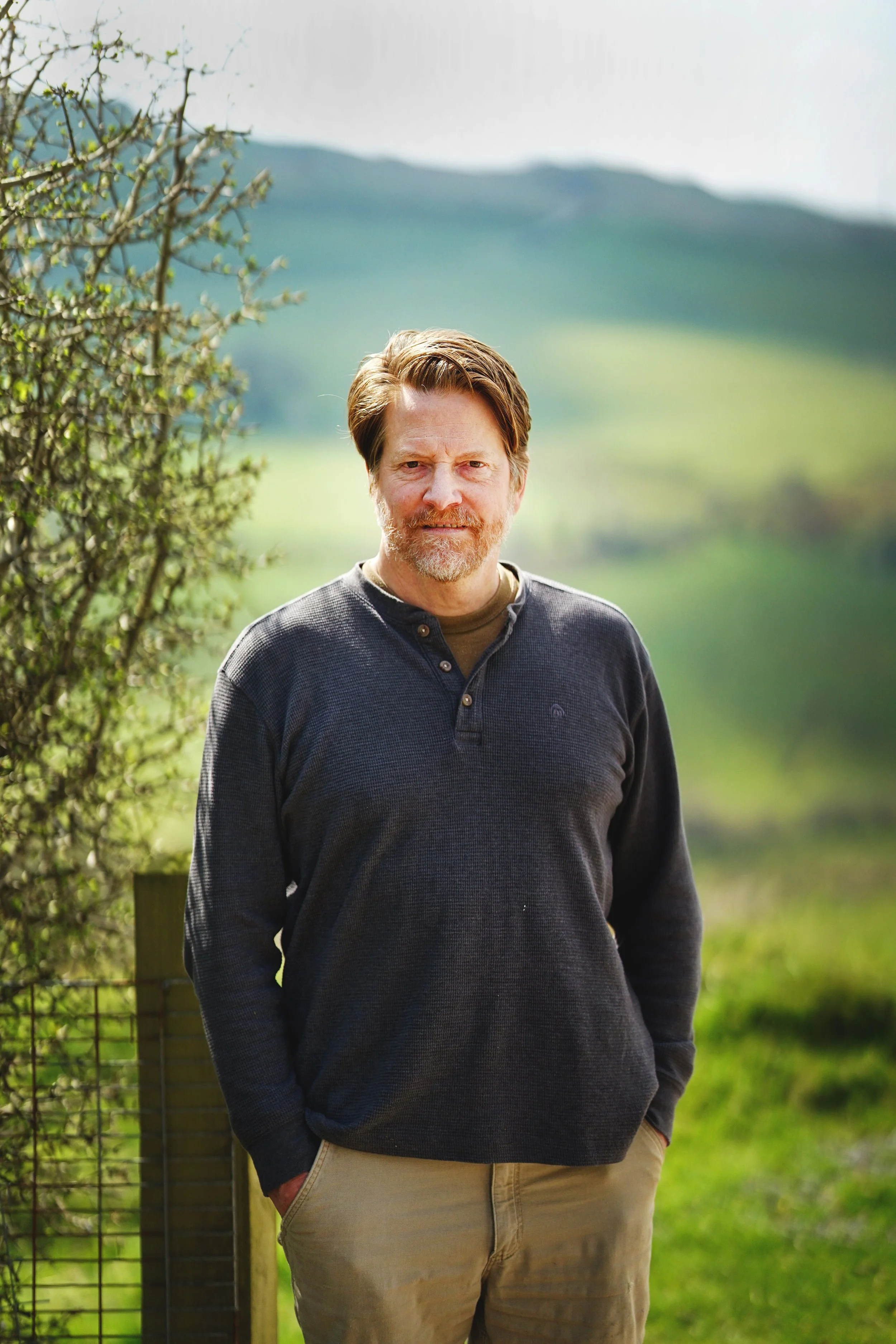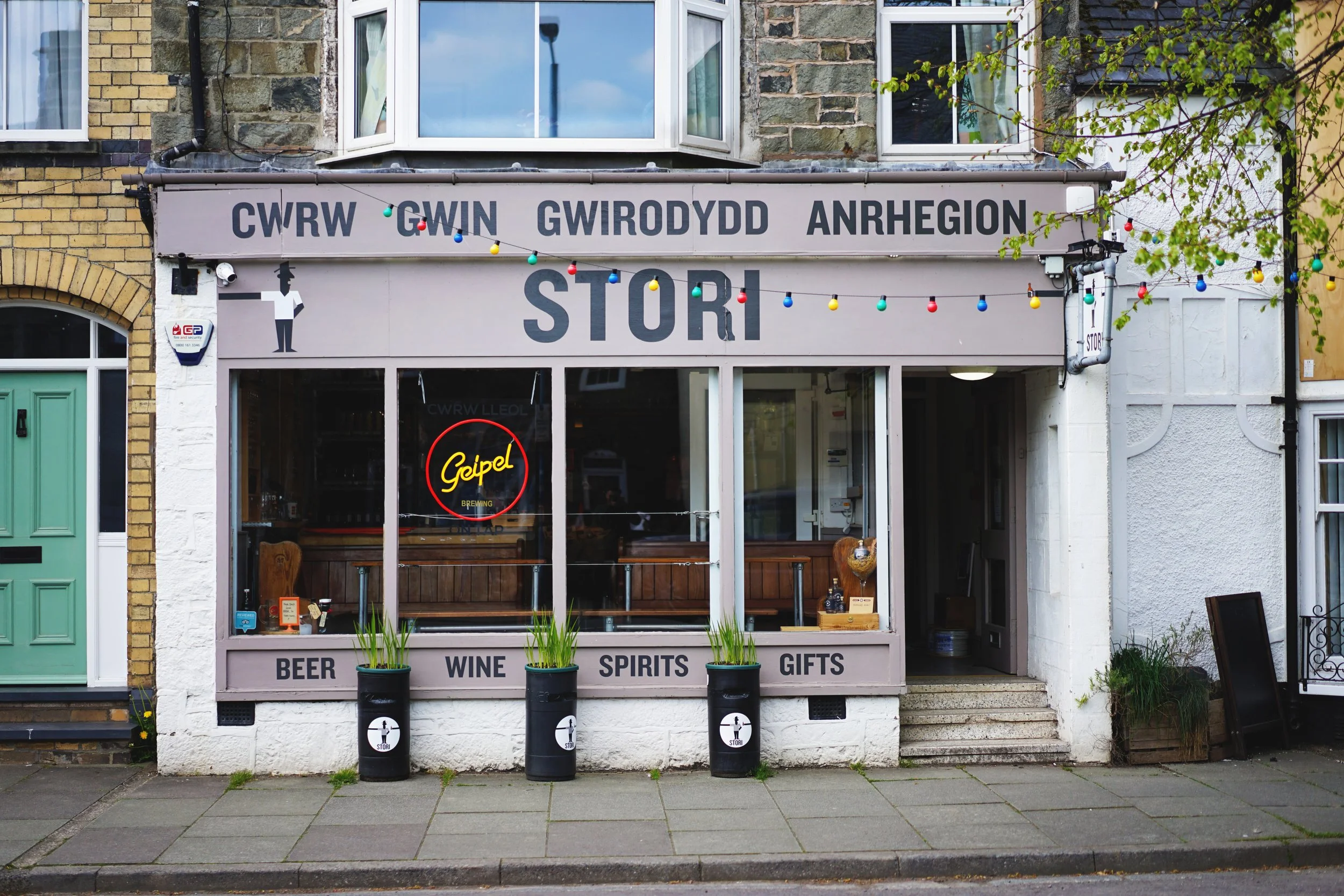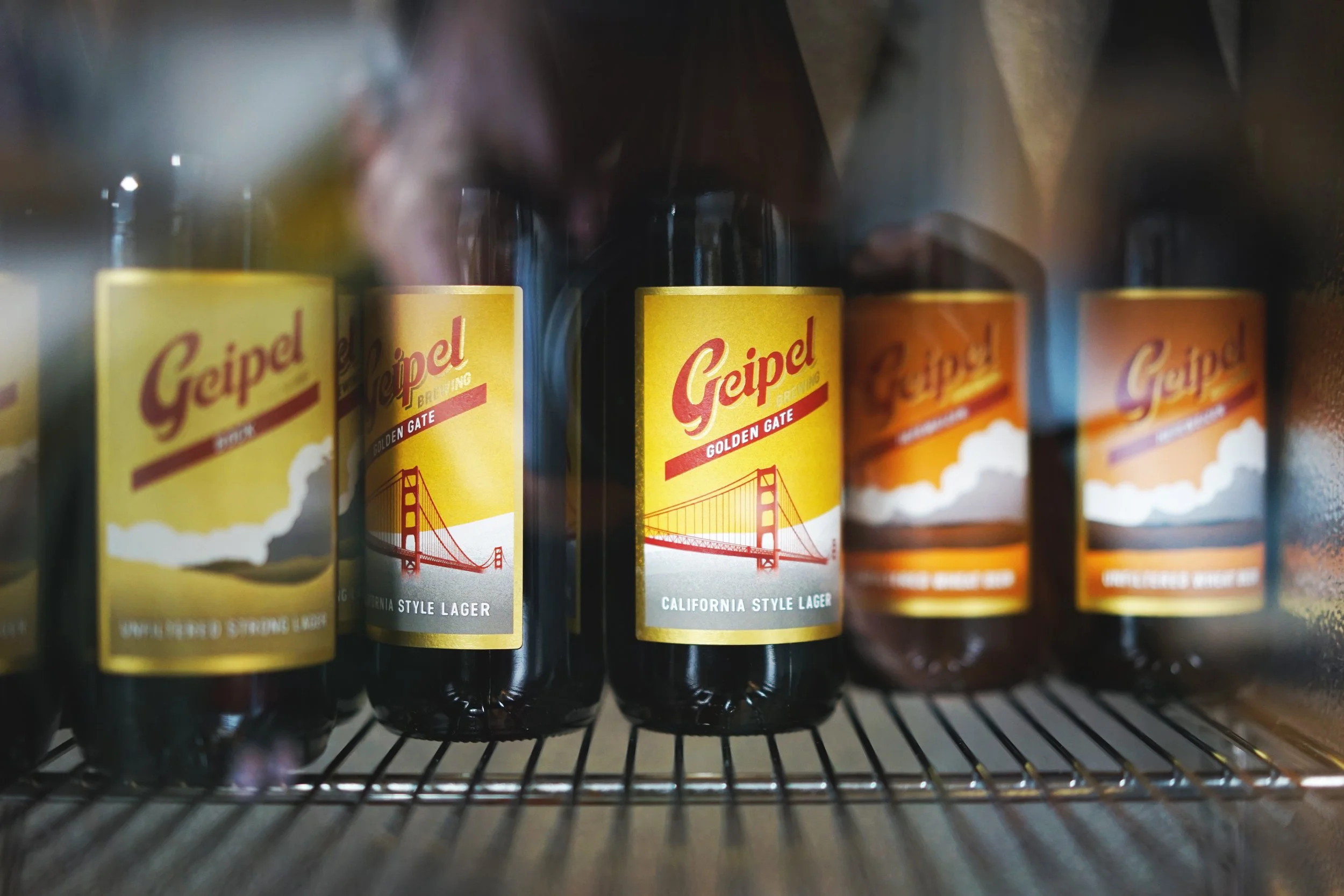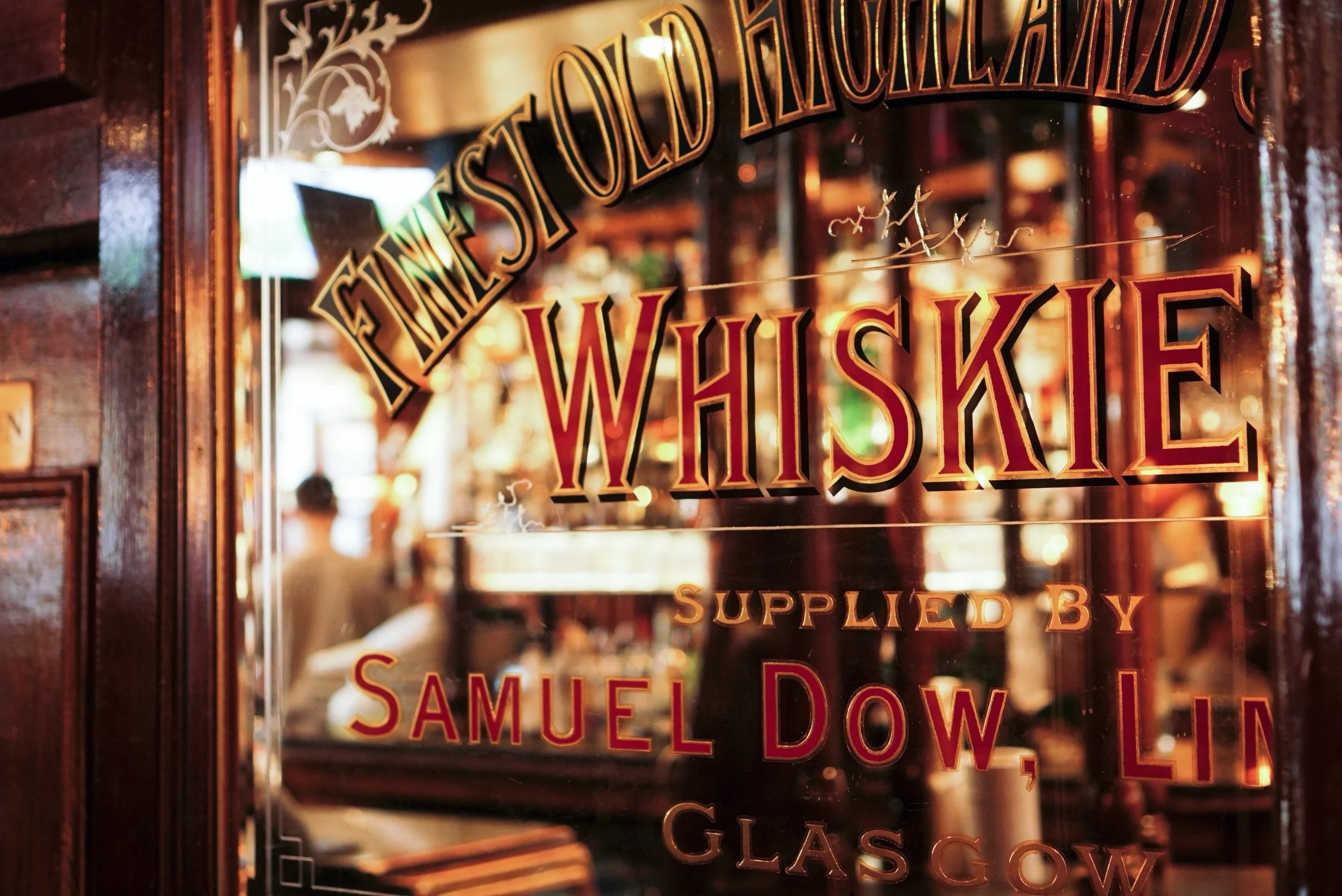Rings Around The World — Geipel Brewing in Corwen, Wales
The process of lagering takes beer to the loneliest of places.
Before this long, cool rest comes the heat and exchange of the decoction mash, then the rough and tumble that marks the boil, followed by the sly nods and winks of fermentation.
Photography by Matthew Curtis
This is brewing as a social act, the beer-to-be chattering away, folding and rolling in on itself and changing and adapting to what will be a new life. Then all of a sudden the beer finds itself in a lagering tank, amidst a cloister-like silence, suspended, all animation stopped. Here it sits, until it reaches its ultimate destination, the waterfall glissando from the tap into the glass.
Silence is equally emboldened at Geipel Brewing’s position high up in the mountains above the road that leads to Bala, at the border of Wales’ Snowdonia National Park. Up here, in the hamlet of Pant Glas in the lee of turret-like mountain Pen y Gop, brewery founder, head brewer, and delivery driver Erik Geupel (English speakers tend to mispronounce his surname, so he changed the spelling to make it easier for them) brews lager. It is good, award-winning lager, such as the graciously soothing, amber-copper Bock.
Here, amid these mountainous heights where one can easily feel free, Erik brews his beers in a barn and lives in the adjoining cottage during the week, before heading back to his family home in Manchester for the weekend. On the October morning I visit him, the weather is wet and windy, wild and unyielding, weather ideal for the massive wind turbines I drive past, bumping and thumping along a rocky farm track, windscreen wipers waving backwards and forwards with the metronomic certainty of a raver, circa 1990.
“I fell in love with the area when I would travel from Manchester to sail on Lake Bala,” he tells me as we drink coffee in the cottage kitchen. “So we bought a house near there. After years in big cities, factories and cubicles, I find it inspiring to work in a beautiful rural setting. I just couldn’t face brewing in an industrial estate or under a railway arch every day. It does create logistical problems, but I’ve overcome those so far.”
I first heard of Geipel in 2018 when its Bock took first prize in a lager challenge organised for the drinks industry festival Imbibe Live. My interest was further piqued when I discovered the beer was brewed near Bala. My maternal taid, or grandfather, Iorwerth Morgan was born close by in the village of Llanuwchllyn, and I used to visit the area as a kid.
I recall a jovial great aunt and her farmer husband and visits to the village graveyard where my taid’s parents were buried, visits to nearby Dolgellau, where my nana had grown up, and staying in Great-uncle Bob’s spooky home in a former pub, scared by his ghost stories. Family roots also played a part in deciding the direction Erik would take when he made his move from homebrewer to professional.
“The decision to brew lager was practical and romantic,” Erik says. “When I initially had the idea for the brewery, I couldn’t see a way to differentiate it from the many small real ale brewers about. The idea probably would have been abandoned except that I travelled to Franconia to research my family roots—my great-great-grandfather emigrated to the USA from there in 1836.”
“I had an epiphany in Bamberg in 2010: their fresh local lagers were so delicious that I thought that there must be a market for something similar in the UK,” he explains. “Even though I loved real ale, I also knew that [roughly] 80% of the beer consumed in the UK was lager and thought I could capture just a tiny fraction of those drinkers. Also, brewing lager is hard, requiring special equipment (refrigeration), processes (decoction) and patience (time). The challenge intrigued me.”
Erik grew up in Columbus, Ohio, and studied computer science at university. Over a couple of decades, his work in tech and software saw him visit Silicon Valley, Austin, Tokyo and, more prosaically, Burton-upon-Trent. It was a visit to the latter that rekindled his university interest in home-brewing.
Come the 2008 financial crash he was out of a job but possessed the time and money to think about what he was going to do next. The farmhouse was bought and it eventually dawned on him that its spacious barn would be ideal for a brewery, even if he was halfway up a mountain. He brewed his first beer in 2013.
What intrigues me about Erik is not just the quality of his beer and the brewery’s unique position, but also his admittance that he likes a challenge, which is possibly why he is the right person to make lager and make it well. He adheres to the Reinheitsgebot (the infamous Bavarian Purity Law of 1516) which stipulates that beer be just made of barley, hops, water and yeast, though wheat gets a free pass as well.
““Contrary to intuition, I find being constrained by rules like the Reinheitsgebot enhances creativity.””
Not many brewers outside of Germany are particularly enamoured of the law, seeing it as a hindrance to innovation. However, Erik is in good company, such as Private Landbrauerei Schönram’s much-acclaimed brewmaster Eric Toft, and like Toft he believes that the law aids, rather than hinders, him in creating the beers he wants to, such as the Bock.
“I used to joke that our Bock was the ‘Spanish Inquisition’ of lagers (i.e. no one expects it to be a lager),” he says, “but these days brewers are falling over themselves to brew something unusual, and drinkers are more sophisticated and not so easily surprised.”
“However, even I’m surprised when I remember that the Bock is brewed with just four ingredients including only one hop variety: Hersbrucker,” Erik continues. “It’s bewildering the complex flavours you can coax out: bitter chocolate, cherry, melon, toffee. Call me old-fashioned but you don’t need tonka beans, kveik yeast and sherry barrels. Contrary to intuition, I find being constrained by rules like the Reinheitsgebot enhances creativity.”
I have written often about the North Wales brewing scene over the past 15 years. The first wave of recent newcomers included the likes of Conwy Brewery, Purple Moose Brewery and Great Orme Brewery (now renamed Snowdonia Craft), all three traditional breweries that have done well. The newer wave includes Polly’s Brew Co, Cwrw Iâl Community Brew Co, and Wild Horse Brewery, with hazy juicy pales very much in the ascendancy.
This makes Erik’s approach to brewing even more intriguing, but it is also exceptionally satisfying that he is producing authentic, full-flavoured lagers. Each one I’ve tasted has thrilled me and drilled themselves onto the palate with an accuracy and an assiduity that makes me want to keep drinking them.
While at the brewery I have a glass of Aloha from Bala, a pilsner dry-hopped with the Australian hop Topaz. Originally developed in collaboration with Tom McNeill of the nearby (and now defunct) Heavy Industry Brewing, it has a sprightly sense of tropical fruitiness on the nose and palate alongside a light and appetising edge of sourness.
Erik’s leap into the dark in 2013 is obviously working for him, even though local brewing contemporaries recall being slightly surprised when they first heard of his plan.
“It came as a surprise to me when I first heard about Geipel not long after I started at Wild Horse in 2016,” Wild Horse’s head brewer Chris Wilkinson tells me. “Brewing traditional lager was so far removed from everything else that was happening in beer and brewing at the time.”
“Then I tried his Bock, and had one of those lights on moments,” he continues. “As I got to try some of his other beers I was both intrigued by the range of styles and obvious points of difference, and also the range of flavours, all presented in an elegant, thoughtful way. As a brewer I’d say Erik is serious, considered, passionate, and also inquisitive—see Aloha from Bala—playing around with modern techniques while remaining committed to his traditional approach. I think this is where Geipel’s strength lies.”
Bala is home to the beer shop and tap room Stori Beers, which is run by Fiona and Neil Hopkins. Geipel’s Pilsner is permanently on tap there and the shop also distributes his beers to pubs in North Wales.
“The beer is simply fantastic, and we are split over our favourites,” Fiona says. “Mine is the Bock, Neil’s is Aloha. It has been our pleasure to see so many people take their first sip of it here and be able to explain where and how it is made.”
This is brewing as a lifestyle choice in a landscape of long sloping mountains. Perhaps this open-minded landscape inspires people like Erik to take a chance, to roll the dice, to set up home at the end of a track. He says at one stage that he’s a loner, which seems to chime with his isolated position. Yet he makes beer, a sociable drink, a drink that brings people together, that when drunk in company cements bonds, and encourages conversation.
“I’m sure everyone thinks it’s a bit odd for an American to base himself here and build a brewery in such an unforgiving location,” he says just before I leave. “And during the February horizontal rains I tend to agree. But most importantly, the brand has gained a loyal local following. My son in Leeds recently met someone who grew up near Bala. She said her father was a fan and mentioned that it was the last drink her grandfather had before he passed away.”










